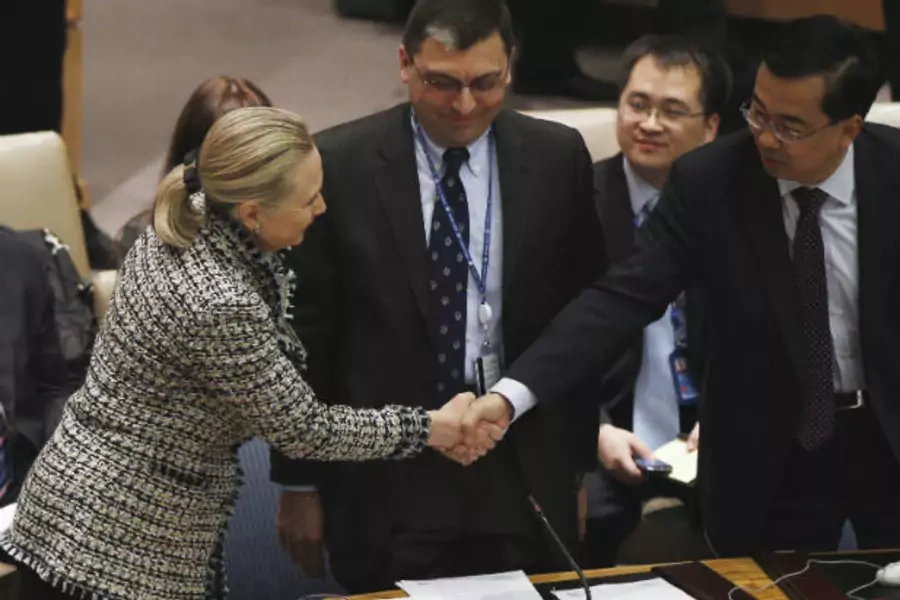The World Next Week: Iran and Afghanistan Debates Plus Greek Debt

More on:
The World Next Week podcast is up. Bob McMahon and I discussed the UN Security Council debates on Iran and Afghanistan, as well as where Greece stands after receiving another bailout.
[audio: http://www.cfr.org/content/publications/media/editorial/2012/20120315_T…]
The highlights:
- UN Security Council sanctions on Iran account for only part of the lengthening list of sanctions on the country, which also includes restrictions independently imposed by the United States, the European Union, and Japan among others. The sanctions clearly have begun to hurt the Iranian economy. The question is whether they are hurting the economy enough to persuade Iranian leaders to agree to international demands that it accept binding restrictions on its nuclear program. A critical country to follow in these debates going forward is Russia. While Moscow has blocked efforts to push out Bashar al-Assad in Syria, it has made it clear it shares the U.S. view that Iran should not be allowed to become a nuclear power.
- Tensions are high in Afghanistan in the wake of a shooting spree by a U.S. soldier, who killed sixteen Afghan civilians, most of them children, and then burned their bodies. The killings and the fallout from them will make it even harder than it already is for U.S. and Afghan soldiers to work together, which makes the prospect that the Afghanistan mission will end well even bleaker. Republican presidential candidates are already beginning to talk less about “staying the course” in Afghanistan and talk more about whether the basic mission is even “doable.”
- Greece satisfied requirements imposed by the European Central Bank for its debt repayment, thereby paving the way for Athens to receive the first payment of its second bailout agreement. With a “hard” or “disorderly” default avoided, at least for now, Fitch Ratings upgraded Greece to a "B-" bond rating. But the economic and financial numbers the Greek government faces remain bleak: unemployment stands at 21 percent (and at 51.1 percent for people aged 15-24), and Greece’s debt currently stands 171.5 percent of GDP. The lesson? The eurozone crisis is far from over.
- Bob’s Figure of the Week is seventeen. My Figure of the Week is Jason Russell. As always, you have to listen to the podcast to find out why.
Vali Nasr argues in Bloomberg that “serious and sustained talks with Iran can bear fruit,” and Reuters reports that the Parchin military site in Iran houses, or used to house, a high-explosive test chamber. The United Nations Assistance Mission in Afghanistan (UNAMA) answers frequently asked questions about their operations, and the Telegraph discusses how British prime minister David Cameron wants an endgame in Afghanistan. Nina dos Santos details on CNN the interesting jargon emanating from the Greek deficit talks, and the Washington Post outlines Greece’s swap of bonds.
More on:
 Online Store
Online Store